Born in Rochester, New York, David Campbell spent much of his childhood in Texas before attending Yale University. He went on to Oxford to read for an MPhil in international relations. After Harvard Law School, Campbell worked in management consulting before moving into the energy sector. Since 2021, he has been CEO of Evergy in Kansas City, an electric utility serving customers in Kansas and Missouri through a portfolio that includes nuclear, fossil, solar and wind generation assets. Campbell has served as a member of Rhodes selection committees for Arkansas and Texas. This narrative is excerpted from an interview with the Rhodes Trust on 13 November 2024.
David Campbell
Texas & St John's 1990
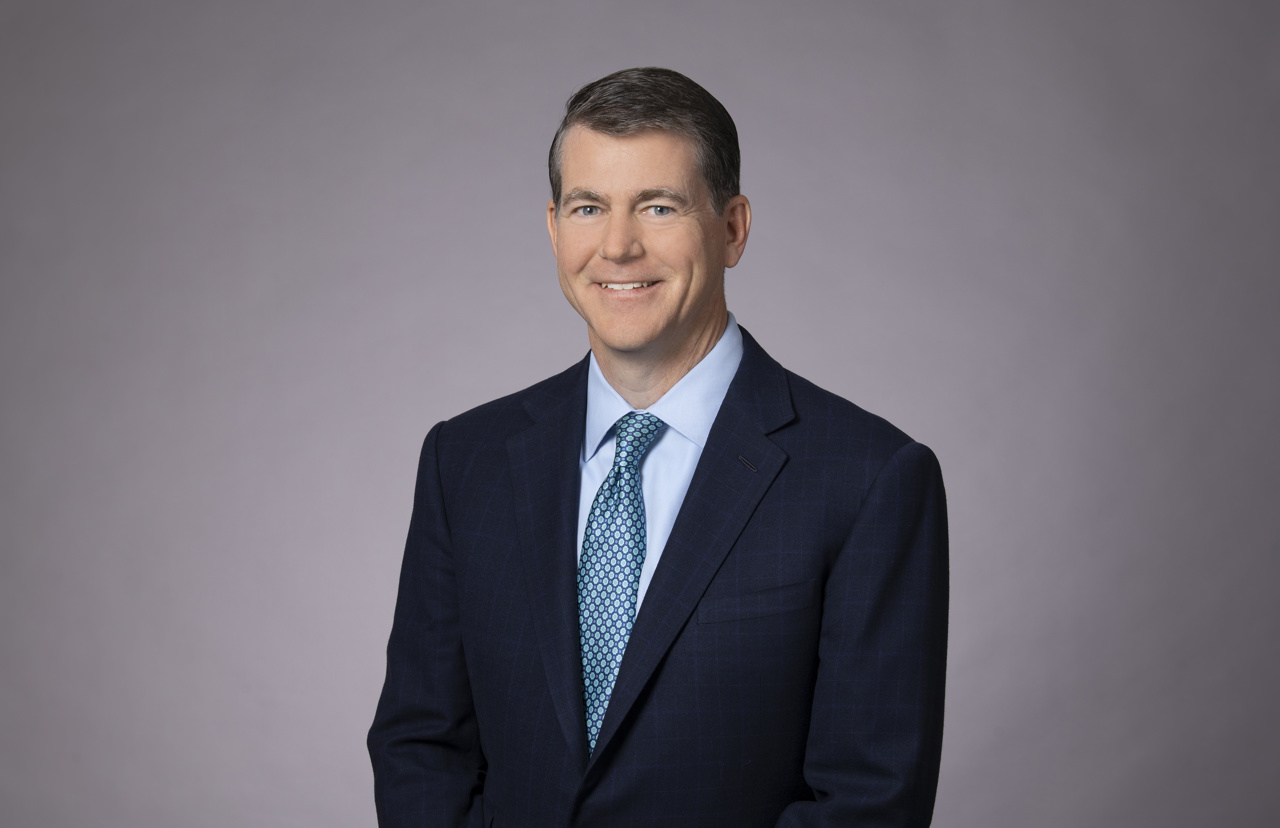
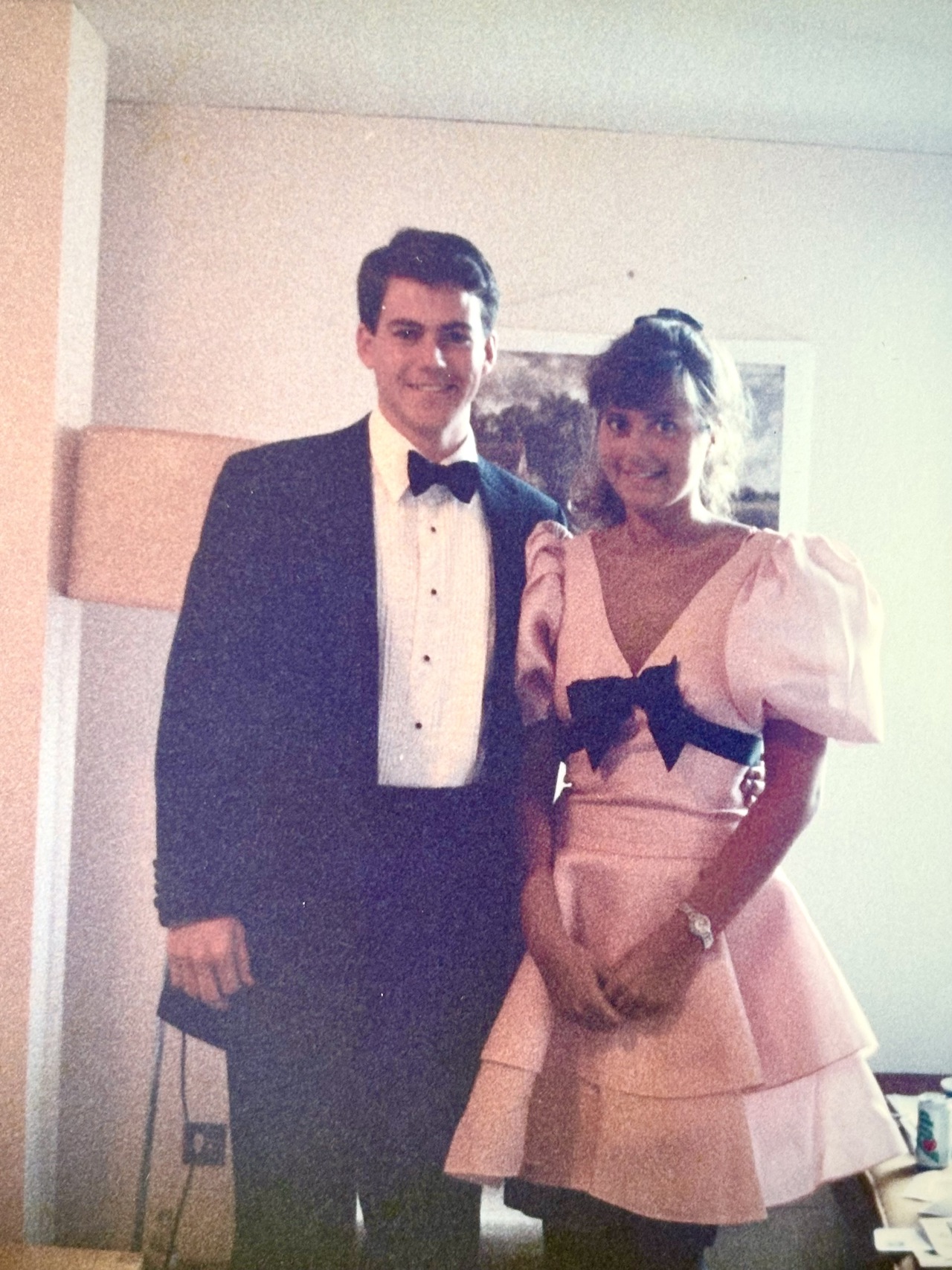
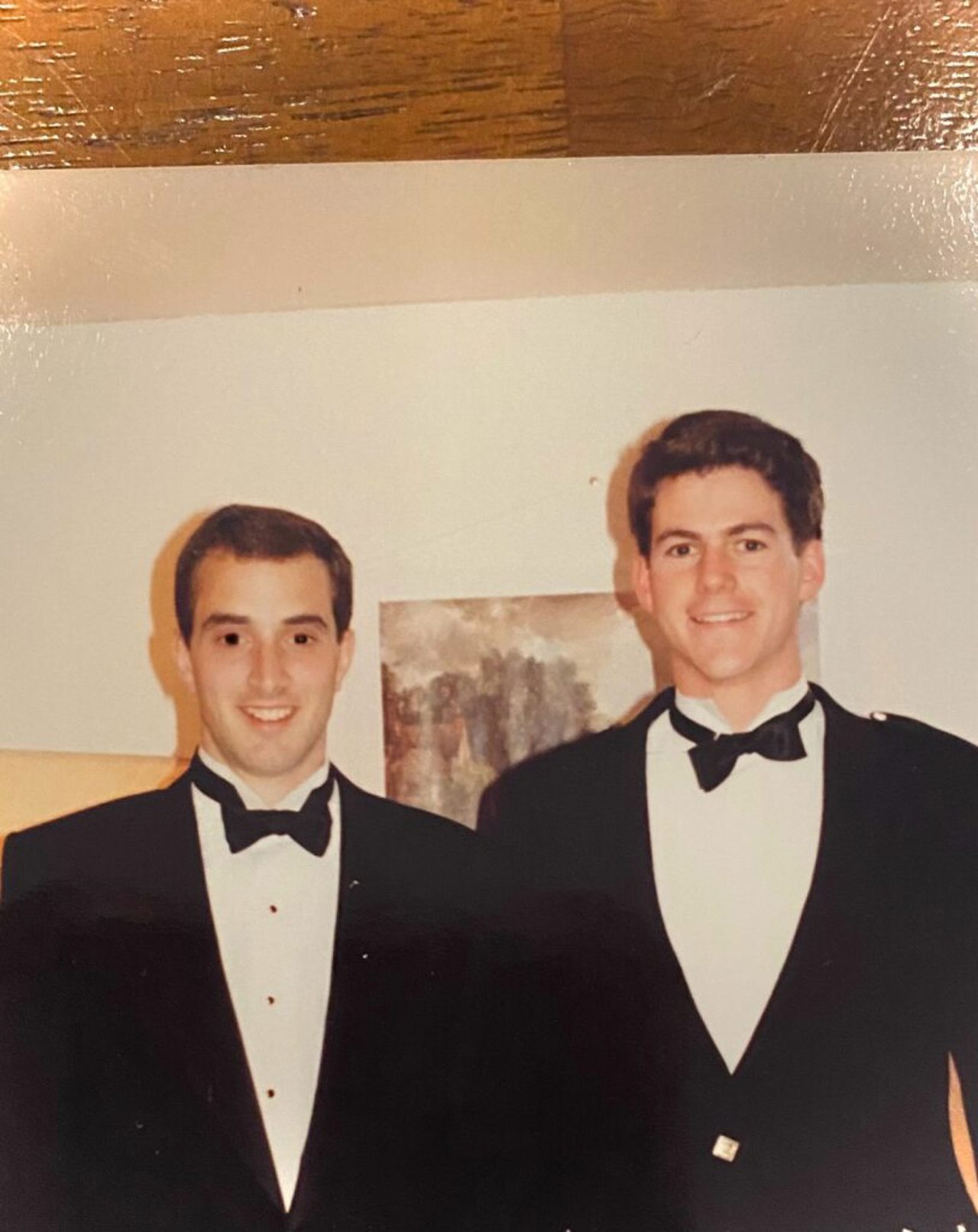
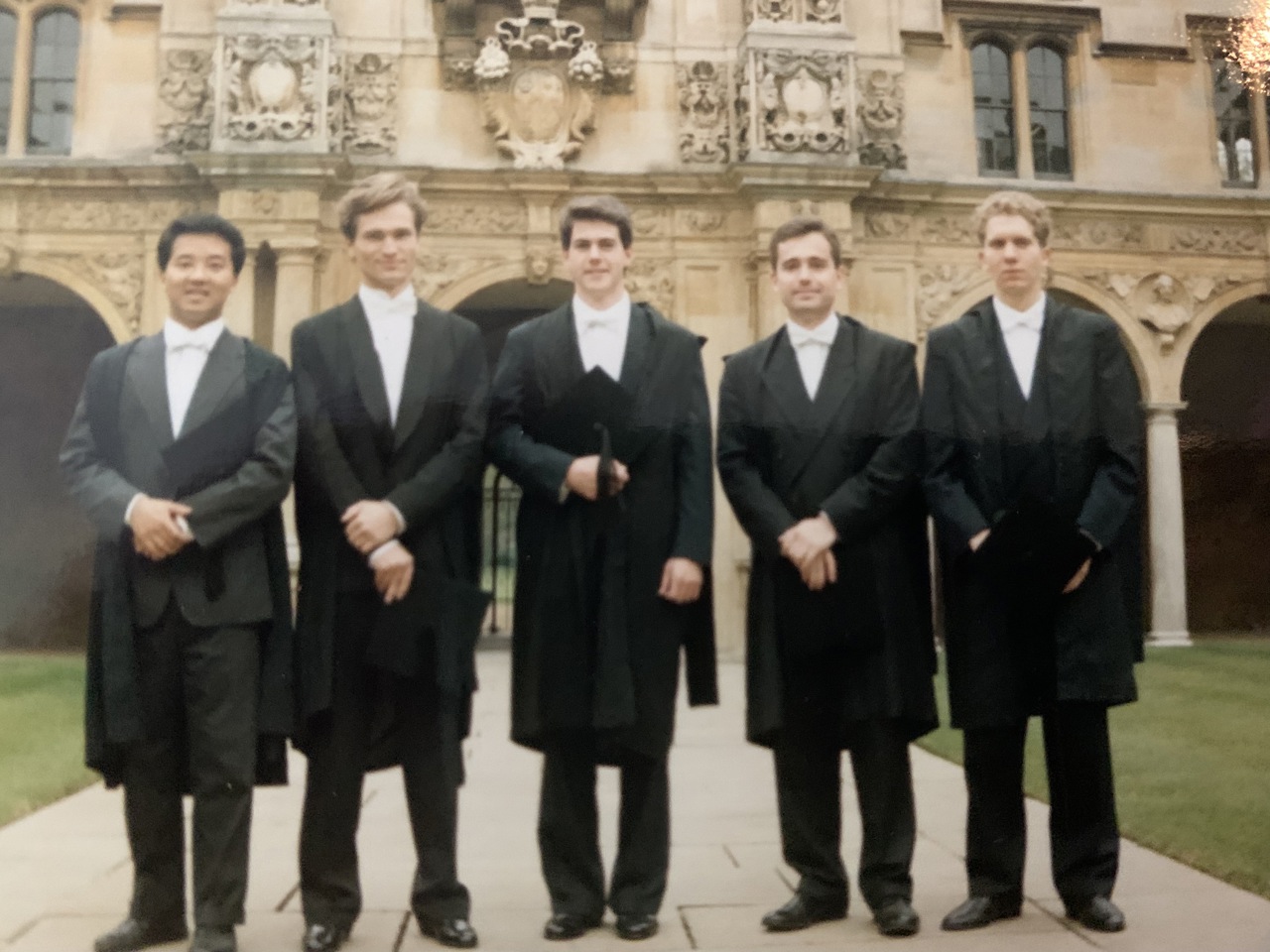
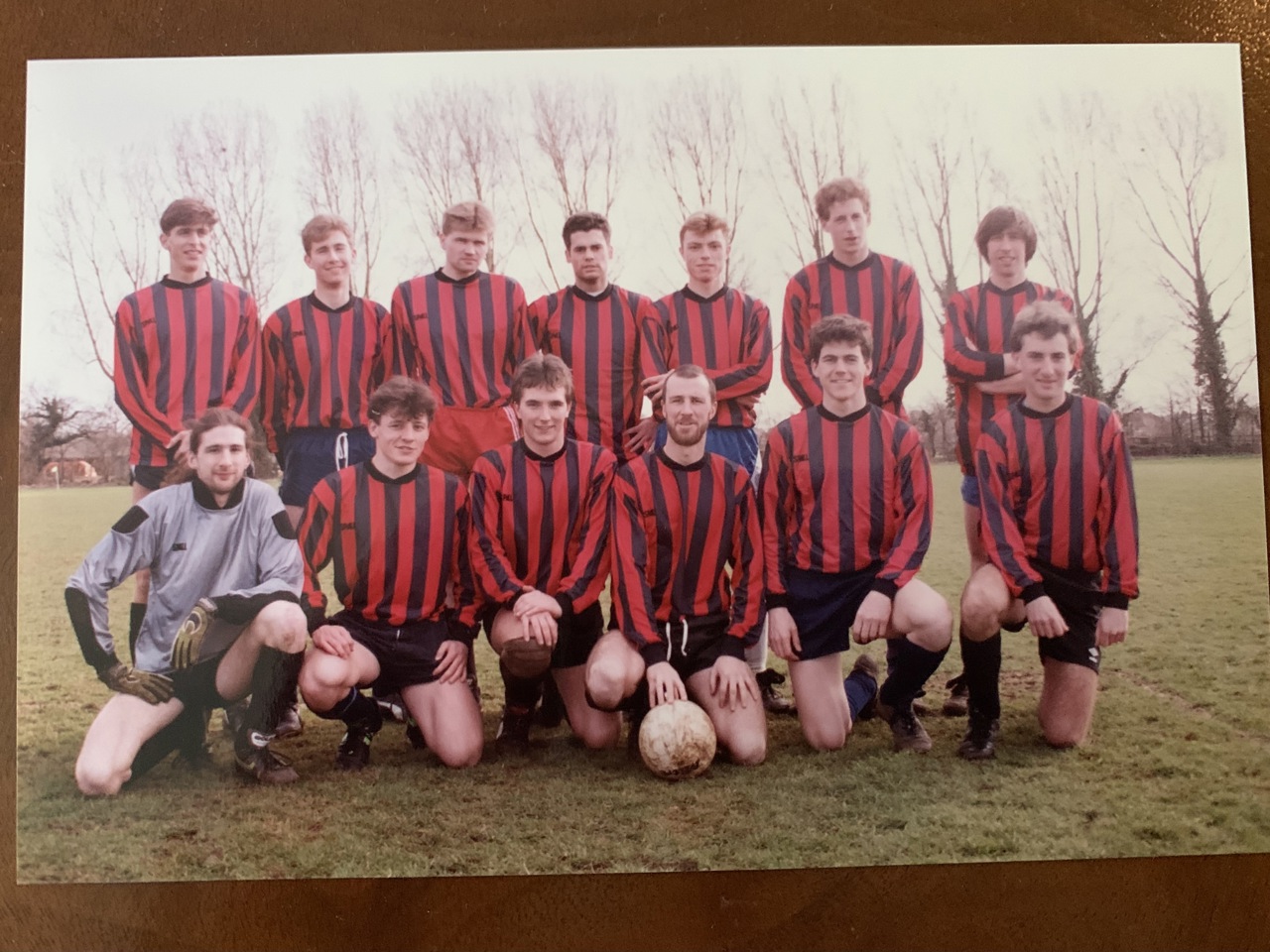
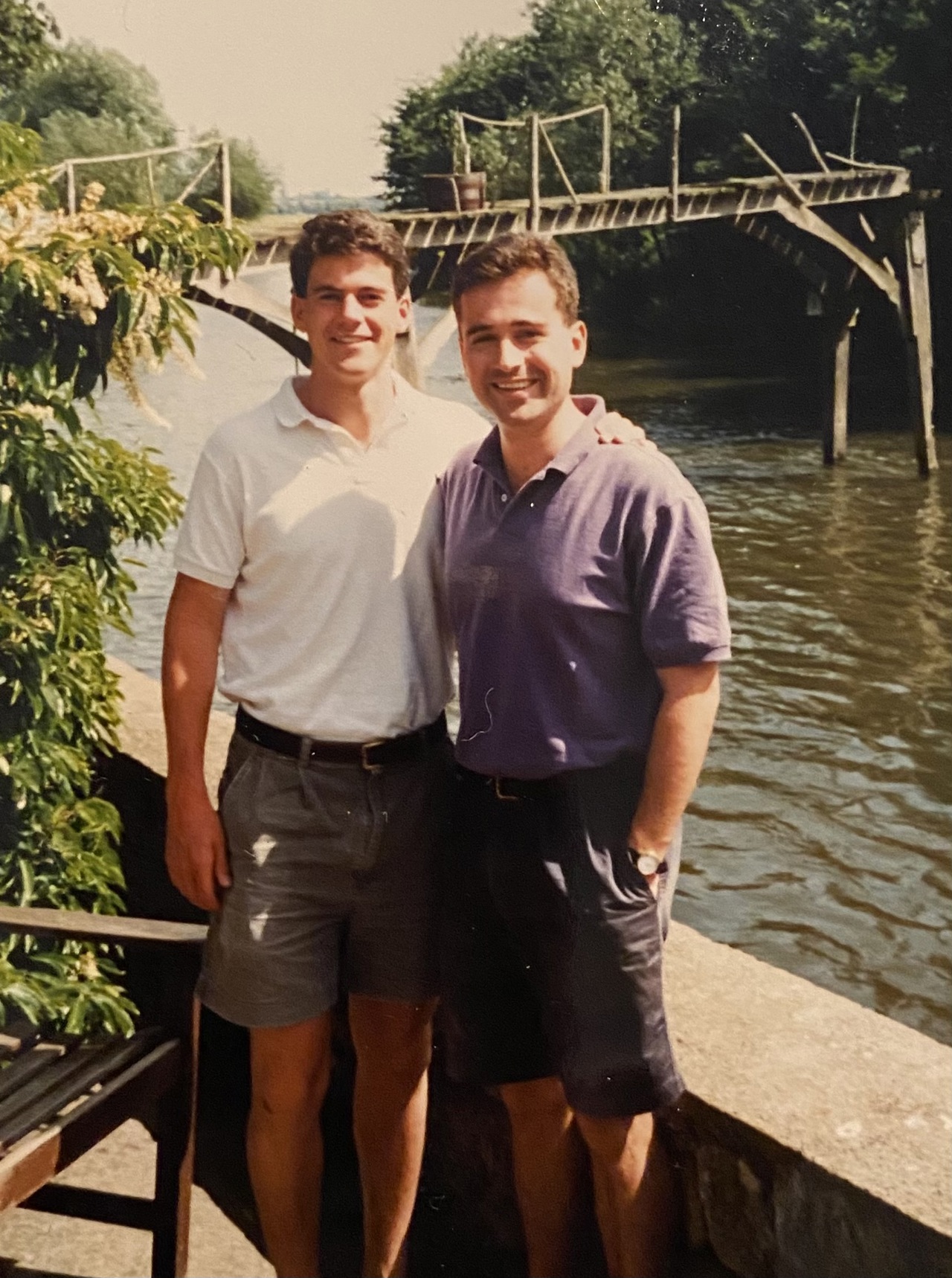
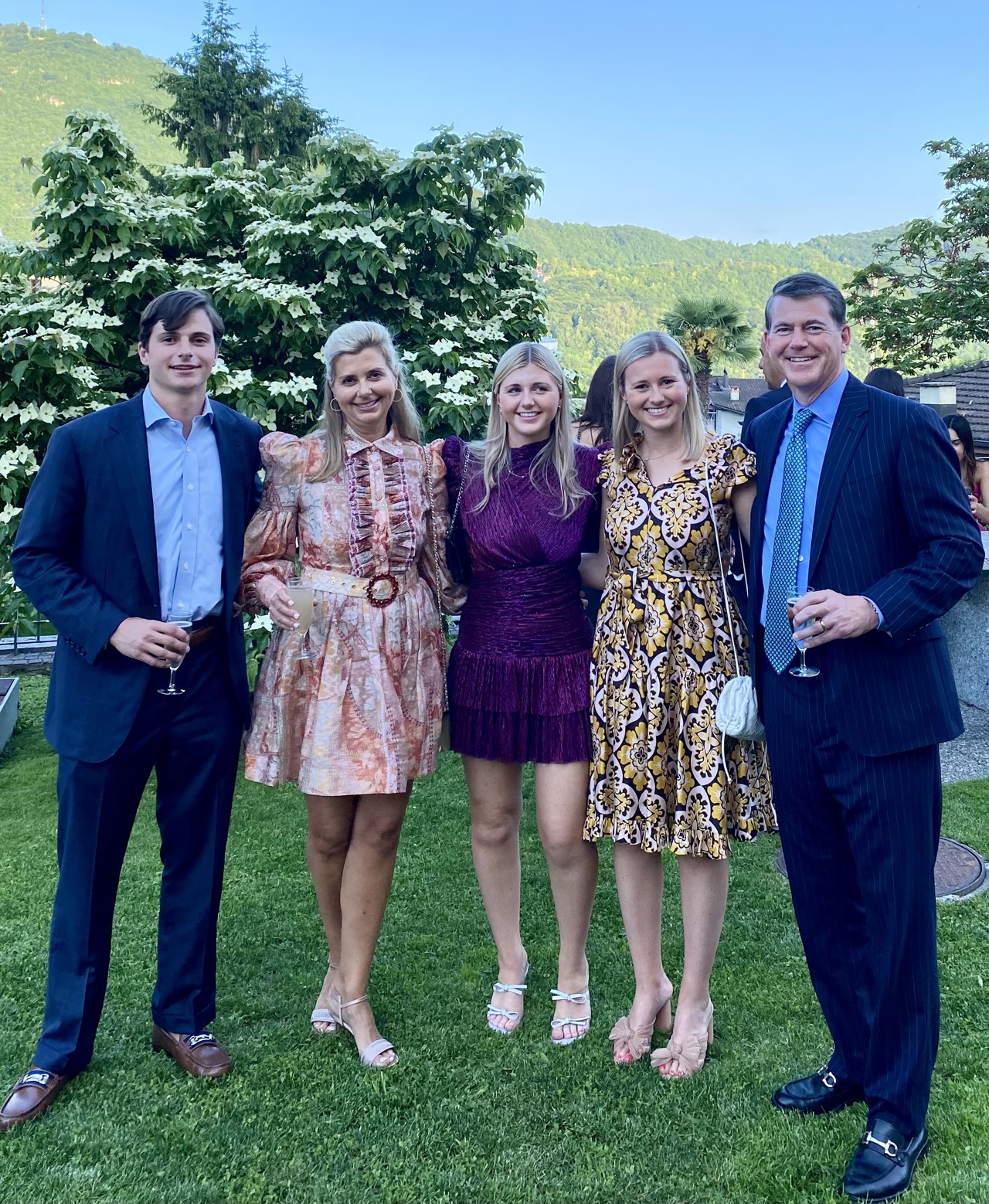
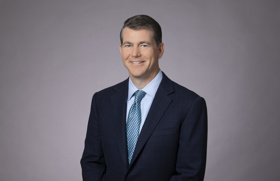
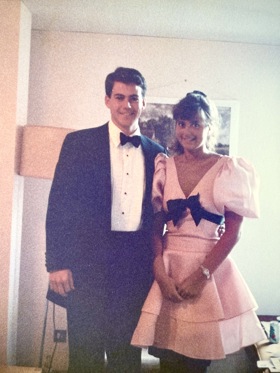
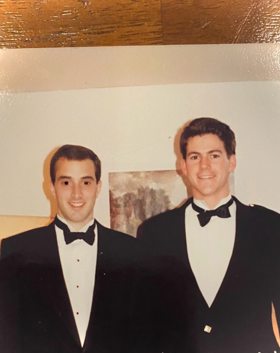
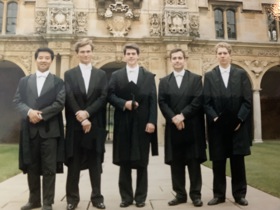
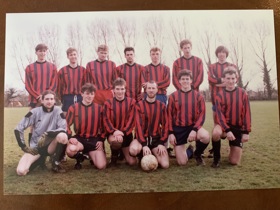
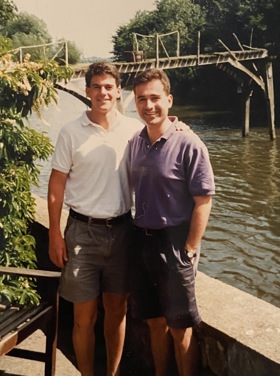
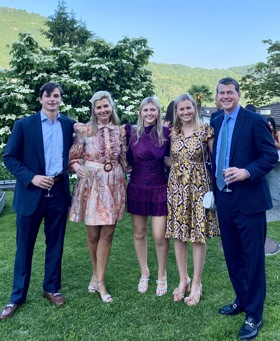
‘I was always interested in maps and history’
My mother is from Rochester, New York, and my father is a Canadian – they met in college in upstate New York. I lived in Rochester until I was seven, and then my family moved to Japan for my father’s work. Being in Tokyo was a terrific experience. It was a such a safe, modern city; even as young children, we were able to take the subway and experience the city on our own. While my life and career have been spent in the heartland of the US, I’ve always had an interest in history and international relations and I think that stems from my childhood experience living in Japan. Throughout my childhood, we also visited family in Canada once or twice a year.
We moved back to the US after three years in Tokyo, first to Milwaukee and then on to Dallas, where I attended high school. I was a bit of a nerd – using a term from the 1980s – as I enjoyed schoolwork and spent my free time reading or playing sports. Growing up, I was always interested in maps and history. I’ve had a long career in business, but even now, I’ll reach for the Economist or a historical biography before I turn to anything business-focused.
On applying for the Rhodes Scholarship
Yale was a place I was thrilled to attend and where I was able to engage in a broad set of activities and interact with great people. I majored in history, with relatively extensive coursework in economics, political science and philosophy. I played a lot of intramural sports and participated in student government. Through those experiences, I discovered I really enjoyed leading and working with people, no matter the setting. Oddly, I also enjoyed leading meetings. While a strange thing to enjoy, having an agenda, getting people involved, making decisions, and ending on time or early is always satisfying.
I never thought about the Rhodes Scholarship until a professor of mine – during my sophomore year – suggested that I should apply, and, more immediately, to start planning to apply. I followed his advice and it ended up changing my life. My academic work focused on western Europe, Canada, and the US, so the prospect of studying in Oxford with the support of a scholarship was very attractive, particularly after participating in a summer program in France after my junior year.
I will always remember when I learned that I’d been awarded the Scholarship. The selection committee announced the names of the winners in person, in a conference room where all the regional finalists were assembled. After I heard my name, everything became a blur. It was such an incredible, adrenaline-filled moment.
‘The academic structure was very different’
At Oxford, I intended to read for a second BA in history. I started down that path but I soon found the course of study to be overly narrow. Fortunately, I shifted to an MPhil in international relations, which a better match with my interests and an extension of my college studies. The academic structure at Oxford was very different compared to Yale. We had some classroom time, but the tutorial system was the highlight of my first year. My tutor would assign me a paper each week and we’d meet to discuss it. My tutor was not especially fond of Americans and not shy about expressing it, but he was an excellent professor and a rigorous teacher. No doubt it was a challenging experience, but also a good one.
During my second year, I wrote my master’s thesis – about Lester B. Pearson and Canada’s role in the United Nations following World War Two – and spent a lot of time conducting research in Ottawa and presidential libraries in the US. I enjoyed researching the thesis but – candidly – my interest diminished while writing it. I completed the thesis and graduated with an M.Phil, but I knew that my passion did not involve pursuing a D.Phil. Instead, I preferred working in a more interactive environment with other people.
I lived in St. John’s College my first year in Oxford. My second year, I lived in graduate housing a block away. We had three or four Australians and a couple of Canadians in graduate housing, and it was an incredibly fun group. Oxford’s term structure and long vacations also gave me the chance to travel, and a lot of that travelling was with Tamara, my then-girlfriend and now wife of thirty years. Tamara and I first dated in high school and reconnected after college. She took a year off before medical school; she lived in Poland and Spain during my first year in Oxford, and we have travelled extensively together across Europe. I also made several trips to see her in the US during my second year. It was a very exciting time.
‘Working on interesting problems with people I like and respect’
When I left Oxford, I asked myself, ‘Do I want to get a professional degree, and if so, when?’ I had previously worked as an intern at a law firm, and I liked the rigor of the law and the flexible career path that a law degree affords. Practically speaking, with Tamara in medical school, it was also the best time to knock out a graduate degree. I attended Harvard Law School and enjoyed the academic experience; the highlight was the opportunity to argue before Ruth Bader Ginsburg during the final round of Harvard’s moot court competition. I initially planned to work in international law, but after working as a summer associate with McKinsey after my second year, I accepted the McKinsey offer. Tamara and I married the week after my last law school exam and we started our life together in Dallas.
I had a great experience at McKinsey. The people were smart, they were inquisitive, they set high standards, and they pushed me to do my best. Although stressful at times, and generally long hours, it was a constant learning environment. The major downside was travel. We started a family, and my priorities began to shift in terms of work/life balance and reducing travel; at the same time, I became increasingly interested in leading an organization rather than consulting. My experience included time in the energy space, and the stars aligned when a Dallas-based company called TXU hired a new CEO in 2004. The new CEO built a team that included new hires who were more familiar with commodity markets, as the power market in Texas had recently deregulated, and I was fortunate to have the opportunity to join as the head of corporate planning and strategy. I became the CFO of TXU two years later.
I would never have predicted that I would work in the electric power sector, but 20 years later, I can’t imagine working in a different industry. I love working on interesting problems with people I respect and enjoy spending time with. Electric power is a behind-the-scenes business – in general, it’s not a good day if we are in the news – and yet we provide a product that is essential to daily life. We make long-term decisions around deploying billions of dollars of capital, while constantly trying to balance affordability, reliability and sustainability for our customer and communities. In our sector we have to be comfortable with high levels of regulation and with significant impacts of decisions by elected and appointed officials. It’s an exciting time in our business, as we’re experiencing historical levels of demand growth due to the sheer amount of power needed to power AI [artificial intelligence] and the electrification of transportation and other sectors.
I learned so much in those first years at TXU, especially around being a leader. Aspects of leadership involve building organizational confidence, giving people the support they need, allocating resources, and setting the right metrics and goals to motivate and reward performance. My foundational view on leadership is that you have to be authentic to yourself and your style. You also have to be purposeful in how you connect with the interests and passions of the people you work with, in order to unlock and support the best in them.
‘Don’t let others define it for you’
I think the aspiration the Rhodes Scholarship represents is powerful and effective. People can make a difference. I know in some lines of thinking, outcomes and problems are driven by systems, and artefacts like the Rhodes perpetuate systems and systematic inequities. I have a different view. I think the Scholarship represents an aspiration to make a difference; the “how” of making a difference may vary person to person, or vary over time, but it is a worthy aspiration. I hope the Scholarship continues with that aspiration front and center, and continues to drive positive impact.
To today’s Rhodes Scholars, I would emphasize that you should embrace the opportunity. It can be daunting to think about whether any one of us is worthy of the scholarship, as someone else could have had that spot; and we all, inevitably, have our struggles and deficiencies. But I would encourage you to trust in yourselves and forge ahead. You will have an impact, no matter how that is defined. Don’t let others define your aspiration for you. Define it for yourself.
